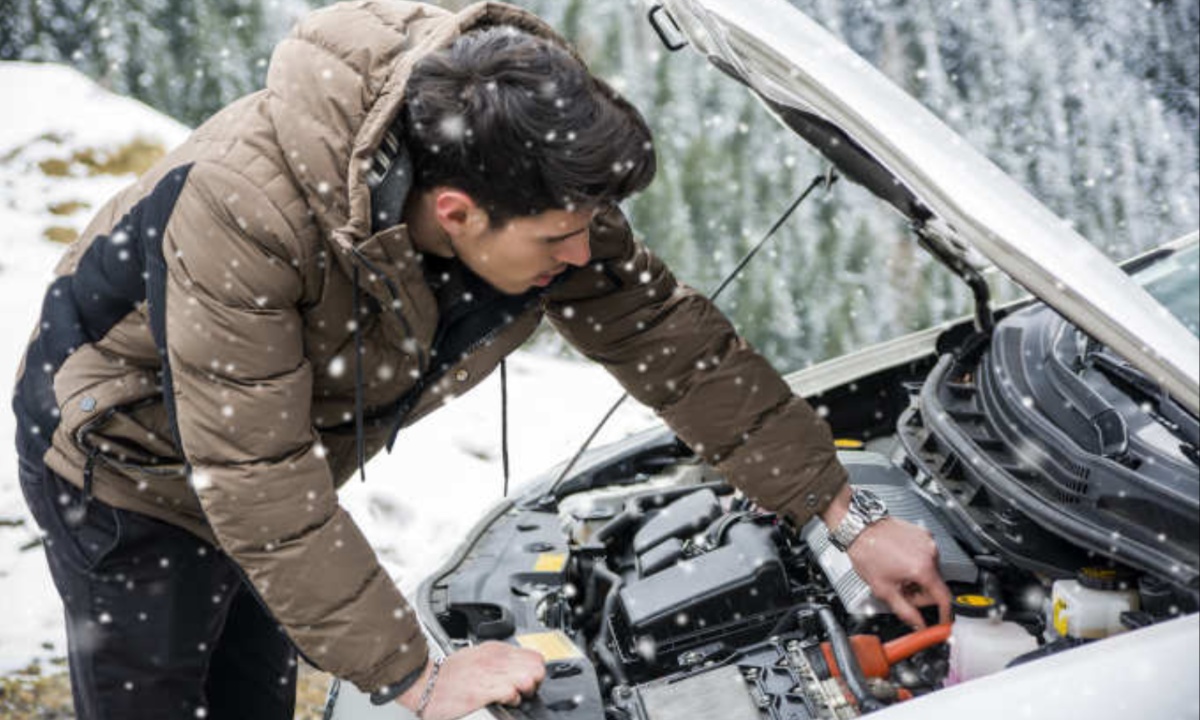Cars can overheat in winter, even though it may seem unlikely due to the cold weather. Overheating occurs when a vehicle’s cooling system isn’t functioning properly, and this can lead to significant engine damage if not addressed. Maintaining the cooling system in good condition is crucial to avoid such issues, regardless of the outside temperature. Understanding why overheating happens in winter and how to handle it can help keep your car running smoothly.
Coolant is a vital component for keeping your engine cool, and low coolant levels are a common cause of overheating, no matter the season. Symptoms of low coolant include a sweet-burning smell, a rising temperature gauge, and issues with the heating or air conditioning. If the coolant reservoir is low, you can top it off, but it’s essential to check for leaks. Signs of leaks include puddles of brightly colored fluid under the vehicle, which indicate a need for immediate repairs.
The thermostat plays a critical role in regulating engine temperature, and if it malfunctions, overheating can occur even in cold weather. A thermostat stuck in the closed position prevents coolant from circulating between the engine and radiator, leading to excessive heat buildup. Addressing a faulty thermostat promptly is necessary to prevent engine damage and ensure reliable performance during winter months.

Radiator problems are another potential cause of winter overheating. Common issues include leaks, rust, and damaged radiator hoses. The water pump, a key component of the cooling system, can also fail and cause problems. During fall and winter, debris like leaves and dust can accumulate around the radiator, clogging its vents and reducing airflow. This makes it harder for the radiator to keep the engine cool, further increasing the risk of overheating.
Preventing winter overheating starts with regular maintenance and inspections. Following the vehicle manufacturer’s recommended service schedule helps ensure the cooling system stays in good condition. Routine checks for leaks, coolant levels, and component wear can prevent issues before they escalate. Staying proactive about maintenance minimizes the chances of overheating and prolongs the life of your engine.
If your car overheats during winter, there are immediate steps you can take. Turning on the heater can help draw heat away from the engine. It’s important to pull over to a safe location and turn off the engine to let it cool for at least 15 minutes. Avoid opening the hood right away, as the hot engine and steam could cause burns. If the issue persists, calling for professional assistance is the safest option.
Ignoring signs of overheating can lead to severe engine damage and costly repairs. Driving with an overheating engine increases the risk of permanent damage to vital components. Taking action at the first sign of trouble, such as stopping to cool the engine and seeking repairs, can save you from more significant issues down the road.
To stay ahead of potential problems, visiting a trusted auto care provider like Firestone Complete Auto Care for regular cooling system inspections is recommended. Professional checks help identify potential issues and ensure your vehicle is ready to handle the winter conditions. With proper care and attention, you can enjoy peace of mind and keep your car running reliably through the colder months.

